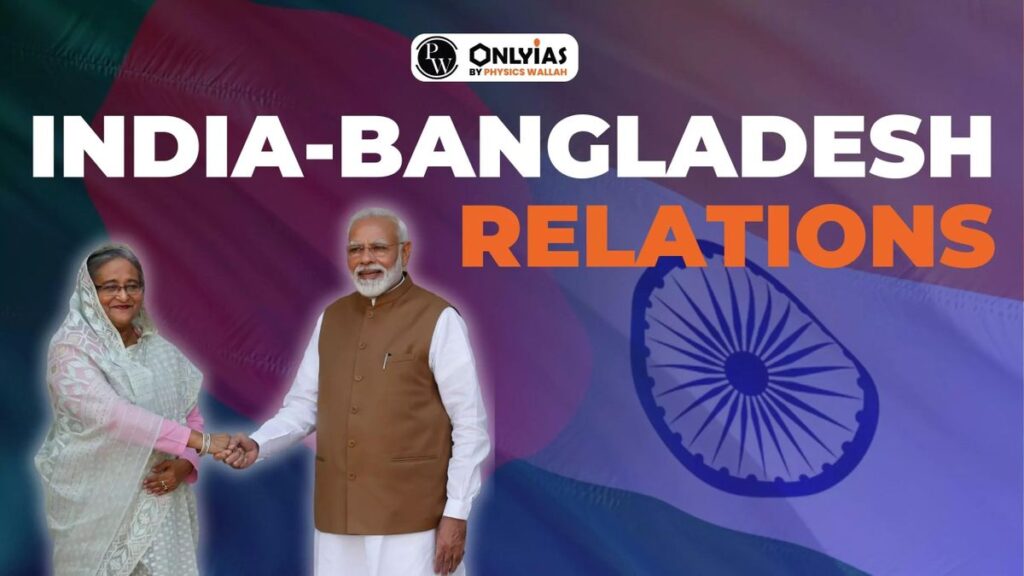Relations between Bangladesh and India have entered troubled waters following the ouster of Prime Minister Sheikh Hasina on August 5, 2024. The interim government, led by Nobel laureate Muhammad Yunus, has exacerbated existing tensions between the two nations, both of which share deep historical, cultural, and geographical ties.
Historically, India has played a significant role as Bangladesh’s ally since the latter’s independence, catalyzed by India’s support during the 1971 Liberation War. This longstanding camaraderie has been tarnished due to political instability and growing unrest expressed by the Bangladeshi populace following Hasina’s departure. Anti-India sentiments have surged as citizens accuse India of interference and undue influence over Bangladesh’s domestic affairs.
Notably, India has been criticized for not providing adequate resolutions to water-sharing disputes related to their shared rivers. Of the 54 transboundary rivers, only one has been accorded a formal water-sharing treaty, leading to perceptions of injustice among the Bangladeshi people.
The Teesta River issue is particularly contentious. Located predominantly within Bangladesh, the Teesta has faced water shortages attributed to India’s management of upstream resources, resulting from the construction of the Gazal Doba barrage. While agreements were made to share the water equitably, adherence has been lacking.
Anti-Indian sentiment is compounded by India providing asylum to Hasina. Many Bangladeshis have called for her extradition to face political responsibilities for her regime’s actions, which they claim were oppressive. Amidst the political upheaval, India’s media has perpetuated narratives against the interim government, leading to greater animosity on both sides.
The Yunus administration’s rise has brought fresh challenges, including increasing reports of violence against minorities, particularly Hindus, since Hasina’s government was ousted. Prominent cases, such as the arrest of Hindu priest Chinmay Das, have stirred unrest on both sides of the border, with accusations of minority persecution triggering reactions from Indian leaders and citizens alike.
The tensions escalated with anti-India protests gaining momentum, accentuated by symbolic acts such as Bangladeshi students stepping on the Indian flag. Such incidents have darkened diplomatic relations and have caused Indian authorities to voice serious concerns.
The closure of Bangladeshi consular offices due to these rising tensions signifies the diplomatic strain. High-profile visits by Indian officials, including Foreign Secretary Vikram Misri, aimed at reaffirming ties, have been met with hostility. Yunus’s insistence on Hasina’s extradition has only widened the rift, leading India to reject the request owing to concerns of politically charged trials.
The deteriorated relations risk significant economic consequences for both nations. Bangladesh is among India’s key trade partners, and instability could disrupt cross-border commerce, affecting the economies of both countries.
Simultaneously, the specter of increased migration due to political unrest poses security risks for India. Given the historical nuances and political complexity of the two nations, immediate solutions are necessary to aver this strain.
The key to restoring relations lies in reinstatement of Bangladesh’s democratic governance. The interim government, criticized for its military backing and lack of experience, needs to establish stability, prioritizing fair treatment of minorities to cultivate international ties, particularly with India.
Reflecting on recent challenges, Indian officials assert their long-standing support for democratic stability, expressing concerns about the Yunus administration’s approach to governance. Indian Prime Minister Narendra Modi raised these apprehensions during conversations with Yunus, emphasizing the need for civil liberties and security for minorities.
Driven by historical ties, the two nations can overcome their clashes through meaningful dialogue focused on mutual respect for sovereignty and addressing legitimate grievances. The increasing influence of China within Bangladesh, marked by significant investments, also adds urgency for India to mend deteriorated ties before losing its historical ally to external powers.
Overall, the situation, rooted deeply in the shared history of the two nations—once collaborative—now teeters on the brink of broader geopolitical consequences. New Delhi must work diligently to restore trust, focusing on dialogue and resolution of contentious issues, including the extradition of Hasina and equitable water-sharing protocols.
The bridge between Bangladesh and India may yet hold, but it requires concerted efforts and political goodwill from both sides to navigate the tumultuous waters and avoid the collapse of decades of diplomatic relations.

